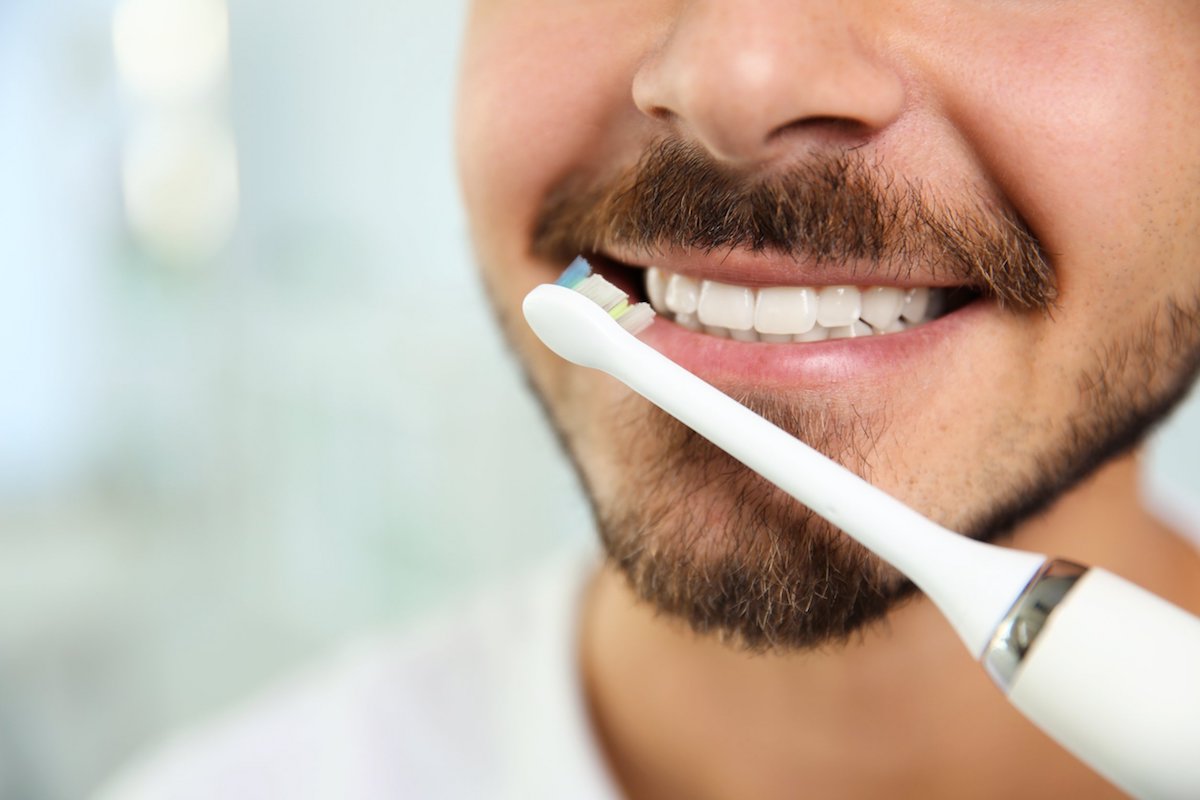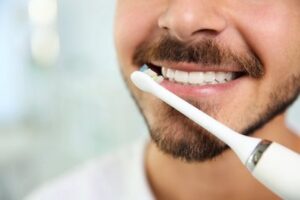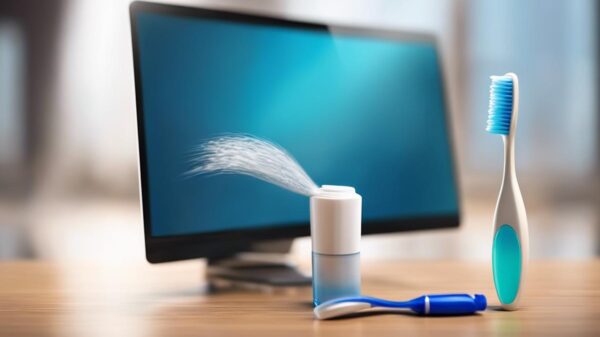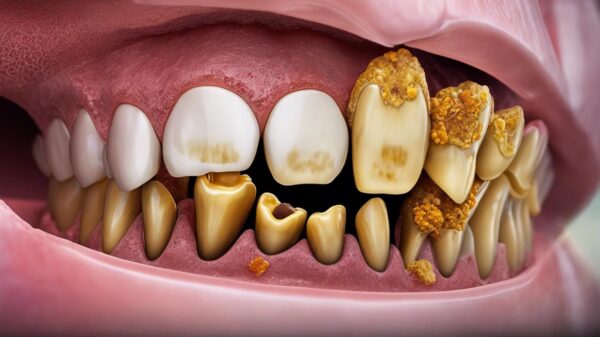Prevent Halitosis With These Effective Tips
Halitosis is a common oral problem that affects millions of people worldwide. When expired air moves past the back of the tongue, soft palate, and other parts of the mouth it spreads an unpleasant smell.
Some causes of bad breath include poor dental hygiene, dry mouth, a bacterial infection in the stomach or intestines, liver disease, and postnasal drip among others. Since halitosis can result from poor oral hygiene, it can be prevented through proper care and attention to one’s teeth.
So, how can you prevent halitosis? Some of the most effective ways to prevent halitosis (bad breath) include cleaning your tongue, cleaning your teeth, drinking lots of fluids, avoiding certain foods, managing stress, and seeking professional dental care.
Keep reading to learn more about the underlying cause of halitosis and how to prevent further issues!

Halitosis Symptoms
Does your breath always smell bad, or do you notice that it smells unusual at times? You may suffer from halitosis symptoms or chronic bad breath. While not all cases of bad breath are caused by tooth decay and gum disease, most commonly this is the cause of unpleasant odors leaving your mouth.
If you have been neglecting your oral hygiene, you may have already developed a cavity. Multiple dental problems could be the reason behind bad breath.
To begin with, chronic gum disease is another common cause of halitosis because it severely reduces the quality of the air that you breathe into your lungs. Not only does gum disease put your teeth at risk but it can also lead to heart disease, diabetes, and other health problems.
Bad breath is usually the first sign of dental issues. If you’re suffering from halitosis symptoms, it’s time to visit your dentist. He or she will be able to determine the cause of your bad breath and suggest a course of treatment for reducing any unpleasant odors emanating from your mouth.
If you are currently suffering from halitosis symptoms, they may be caused by tooth decay or gum disease. While both of these can be treated, the sooner you start your treatment, the more effective it will be. If left untreated for too long, infections in the mouth can lead to serious health complications.
Halitosis symptoms can be caused by tooth decay and gum disease. Visit your dentist as soon as possible for a diagnosis and treatment options to reduce unpleasant odors from your mouth.
If you have been suffering from halitosis, some at-home remedies can assist in removing bad odor and regaining your smile and confidence.
6 Solutions to Halitosis
Here are our top solutions for effectively preventing halitosis:
1. Clean Your Tongue
A clean tongue is a healthy one and this reduces the chances of halitosis. To do this, scrape the back of the tongue with a tongue scraper or brush using a toothbrush. Ensure to clean the sides of the tongue equally.
Rinse with water and repeat daily to get rid of papillae, bacteria, and other debris buildups on the tongue. The use of a tongue scraper would be recommended for this purpose. A tongue scraper is an instrument with a flat, wide metal blade that has a handle and would be used to dislodge any debris or bacteria on the tongue.
2. Clean Your Teeth
Remember that you are what you eat, that is why it’s also critical to maintain proper dental hygiene to avoid halitosis. Brush your teeth at least twice daily with fluoride toothpaste, floss regularly, and visit the dentist for routine checkups.
Mouthwash may be considered a solution to halitosis. Mouthwash is a liquid that is swished around in the mouth for about 1 minute before being spit out. Some types of mouthwash include antibacterial agents such as cetylpyridinium chloride and alcohol that help to reduce the number of bacteria in the mouth.
These types of mouthwash may be considered effective solutions to halitosis, but may also have negative results such as overuse or ingestion.
3. Drink Lots of Fluids
Drinking lots of water or juice helps keep your mouth hydrated which rinses away food particles that cause odor. It also stimulates saliva production that washes away harmful bacteria.
4. Avoid Certain Foods
Some foods just have a stronger odor that triggers bad breath. If you have this problem, limit your intake of onions, garlic, and similar foods to avoid halitosis. On the other hand, maintain a healthy diet with lots of fresh vegetables and fruit for a fresher breath tomorrow morning.
5. Manage Your Stress
Apart from oral health, emotional well-being also contributes to halitosis. If you are under pressure or experiencing anxiety or stress in life, you can develop psychosomatic bad breath where the mind becomes the main factor in the problem.
Try to take up meditation, yoga, and other relaxing activities that can lessen stress and avoid smoking as these activities can also lead to halitosis.
6. See a Dentist
One of the most common causes of bad breath that persists is oral malodor and this can be due to poor oral hygiene, gum disease, tooth decay, and even some medications. Visit your dentist for an evaluation and diagnosis so you can manage the problem.
Bad Breath
Today it is fairly common to have a case of Halitosis or Bad Breath. Many people in this age claim that they wake up in the morning with a bad taste in their mouths and half the time they blame it on not brushing their teeth well before going to sleep. While this may be true, there are other causes for halitosis that are much more harmful.
Halitosis can be defined as an offensive odor that arises from the mouth which is generally accompanied by a sore throat or gingivitis. The most common cause for halitosis is poor oral hygiene.
However, others include stomach-related diseases such as gastroesophageal reflux disease (GERD), smoking, infections, dead tissues within the mouth, and foreign bodies such as chewing tobacco.
Bad Breath Home Remedy
Bad breath that is caused by bacteria can be treated with a mouthwash. The most effective one is made from hydrogen peroxide and water in the following ratio: 20 milliliters of 3% hydrogen peroxide to 80 ml of water. You can make a solution in this ratio at home or buy it pre-mixed.
You can also use mouthwashes containing chlorine dioxide, which is very effective against the bacteria that cause bad breath. Chlorine dioxide works by oxidizing sulfur compounds, so they lose their ability to produce hydrogen sulfide gas.
Clove oil is not as strong as pure hydrogen peroxide but it is useful for mild cases of halitosis. All you need to do is dab a few drops on the affected areas, allowing them to soak in.
Listerine mouthwash is also effective against bacteria that cause bad breath. However, it can be too strong for some people so you should dilute it before use.
Interesting Facts About Bad Breath
Here are some other facts that may surprise you:
- One in three people has a problem with bad breath at any given time.
- On average, men have worse breath than women because they tend to eat more garlic and onions, take more medications, and have a higher intake of coffee.
- On average, women have worse breath than men because they tend to have more nasal congestion which can affect how odors are carried from the mouth into the nose.
- If you experience halitosis for longer than 12 hours, seek medical attention immediately.
Preventative Measures and Tips
It is important to keep in mind that not brushing and flossing your teeth for a few days should not result in halitosis. If this occurs, it might be time to look into the cause of the terrible breath other than forgetting to brush and floss. To help reduce the risk of getting bad breath, here are some recommendations:
- Drink plenty of water and chew sugar-free gum after meals to increase saliva production, which helps reduce plaque and the formation of odor-causing substances.
- Avoid foods and drinks that can promote bad breath such as coffee, soda, and cigarettes.
- If you smoke, talk to your dentist about ways to help you quit. Your dentist can also recommend products that can minimize bad breath if quitting smoking is not an option.
- Brush, floss, and see your dentist regularly for professional cleanings which can decrease debris between the teeth and under the gum line.
If halitosis persists after following these recommendations, it might be time to see your dentist or doctor. If you think that something is wrong and you believe that your breath is the cause of the problem, go and see your dentist as soon as possible. Bad breath has many causes and some can be more severe than others.
Treating Halitosis
Bacteria form on the tongue, throat, and other areas in or around the mouth. It is usually harmless but it can be responsible for bad breath. Symptoms include bad breath which you notice yourself, possibly thickening of saliva, coughing, or sniffing.
Difficulty in swallowing is a rare symptom. It may cause bad breath which you notice yourself, or it can be noticed by other people, especially if they are close enough to smell your breath. It is most common in the morning and after sleeping, because of having food debris resting against the back of your tongue while you sleep.
Halitosis can be caused by people eating large quantities of certain types of food, such as garlic, onions, and other strong-smelling foods. It’s important to note that it is possible to have bad breath without any bad smells being produced at all. So you could have NHS but there would be no rotten egg smell for you to detect.
Many different types of bacteria can cause halitosis including the following:
- Bacteria on the back of your tongue
- Spicy or strong-smelling food you have eaten
- Dry mouth syndrome
- Daily activities such as smoking, poor dental hygiene, and drinking too much alcohol
- Diseases of the nose, throat, and tonsils
- Diseases of the upper respiratory tract such as pneumonia or bronchitis
- Infections in the mouth are often caused by plaque build-up on your teeth
- Hormonal factors influence glands inside the body that release fluids into saliva. These include problems with the adrenal gland, pancreas, or thyroid gland
Steps for Healthy Mouth
- Get plenty of fresh air, particularly when exercising
- Drink lots of water throughout the day
- Eat a healthy diet high in fiber and low in sugar and fatty foods
- Maintain good dental hygiene by brushing your teeth twice or more per day with fluoride toothpaste, cleaning between your teeth every day using interdental brushes or floss, and visiting your dental hygienist for regular checkups
- Use a tongue scraper to remove bacteria from the surface of the tongue every day
- Visit your doctor if you have bad breath that persists despite following these steps.














